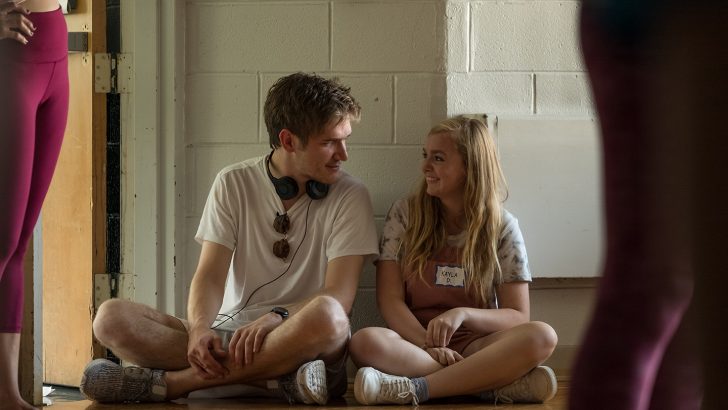The View
I missed the movie, Eighth Grade, when it was in cinemas but saw it recently on Netflix. In the US, being in eighth grade is roughly equivalent to second year, a particularly difficult age. Hormones kick in and friendships become complicated.
Painful
Social media has made being a teenager even more difficult. The protagonist, Kayla,(an excellent 14-year-old named Elsie Fisher) is a painfully shy girl with acne. She makes YouTube videos giving advice to others about how to be confident and make friends. The contrast between the videos and her own life is painful.
The movie is a pitch-perfect rendition of what it is like to be a teenage girl who is not fitting in. I often found myself wincing in sympathy. As a teacher, I felt even more keenly than usual how difficult it is for adults to offer any comfort to someone who just wants to be part of the gang but has no hope of doing so.
Kayla endlessly scrolls through her social media feeds, at one stage doing so to the swelling sound of Enya’s Orinoco Flow”
At one stage, she courageously accepts an invitation to a pool party, which must be the most excruciating invitation for a body-conscious teenager to accept. She is the only one wearing a one-piece swimsuit, and while a perfectly healthy weight, she has a little tummy and a few bulges, which none of her tanned and toned classmates have. She takes refuge in the pool but later suffers social shame when her gift of a card game is treated with silent disdain by the queen bee who is throwing the party. (The queen bee’s mother forced her daughter to invite Kayla.)
Kayla endlessly scrolls through her social media feeds, at one stage doing so to the swelling sound of Enya’s Orinoco Flow. Writer and director, Bo Burnham, says that he begged Enya for permission to use it because he wanted to convey that for Kayla, this is like a religious or spiritual experience.
Kayla also has no idea how to navigate the kind of sexualisation that is common at that age. She has a massive crush on a skinny, good-looking creep called Aiden, who only shows even the slightest interest in her when she claims to have a folder of dirty selfies on her phone and that she is comfortable with oral sex. Of course, none of this is true.
The scenes that follow show her looking up tips about oral sex on the internet. There have been complaints about how graphic these scenes are, as we watch Kayla viewing a cheerful agony aunt describing (the sound is muted) how to perform fellatio.
It makes for uncomfortable viewing but it is also a vivid reminder that many teenagers will be looking up this kind of thing, and far worse. In this scene and in a later one where an older boy tries to manipulate Kayla into taking off her shirt, Burnham is showing the reality of premature sexualisation. Rather than endorsing it, Burnham is showing how vulnerable young girls are.
However, I think we could have done without an earlier, very brief scene, where a fellow student is shown using his shirt to hide the fact that he is masturbating during a sex education class.
Interestingly, Kayla says no to the older boy who tries to manipulate her, but feels nothing except shame for doing so. She is afraid that the older boy will tell their mutual friend, a kind high school age student called Olivia. The audience is aware that Olivia would have torn strips off the older boy for treating Kayla so badly but Kayla cannot see that.
Cultural inversion
It illustrates perfectly a weird cultural inversion. Girls feel shame, as if they are being prudes when not ready to have a sexual encounter, rather than anger at being pressurised and manipulated.
Kayla has a sweet, kind, somewhat dorky, single dad, who is endlessly patient. I would never have put up with the way Kayla treats her father, which includes being constantly on her phone at mealtimes and treating him like he is an idiot. It is great, nonetheless, to see a positive male role model, whose love provides Kayla with a refuge even though she wants to be too cool to need it. Kayla eventually also makes friends with a nerdy boy, who is also sweet and kind.
Neither is there any mention of transgenderism, which shows how fast things change”
Even though it was only made in 2017, things have only got worse on social media since then with the advent of Tiktok, which consumes even more time and attention than the apps Kayla uses. Neither is there any mention of transgenderism, which shows how fast things change.
The movie ends on a positive note and despite the scenes I mentioned and some graphic language, could provide parents and children with a valuable entry point to discussing some of the tougher aspects of being a young teen.


 Breda O'Brien
Breda O'Brien Bo Burnham and Elsie Fisher star in a scene from the movie Eighth Grade. Photo: CNS/A24 Films.
Bo Burnham and Elsie Fisher star in a scene from the movie Eighth Grade. Photo: CNS/A24 Films. 